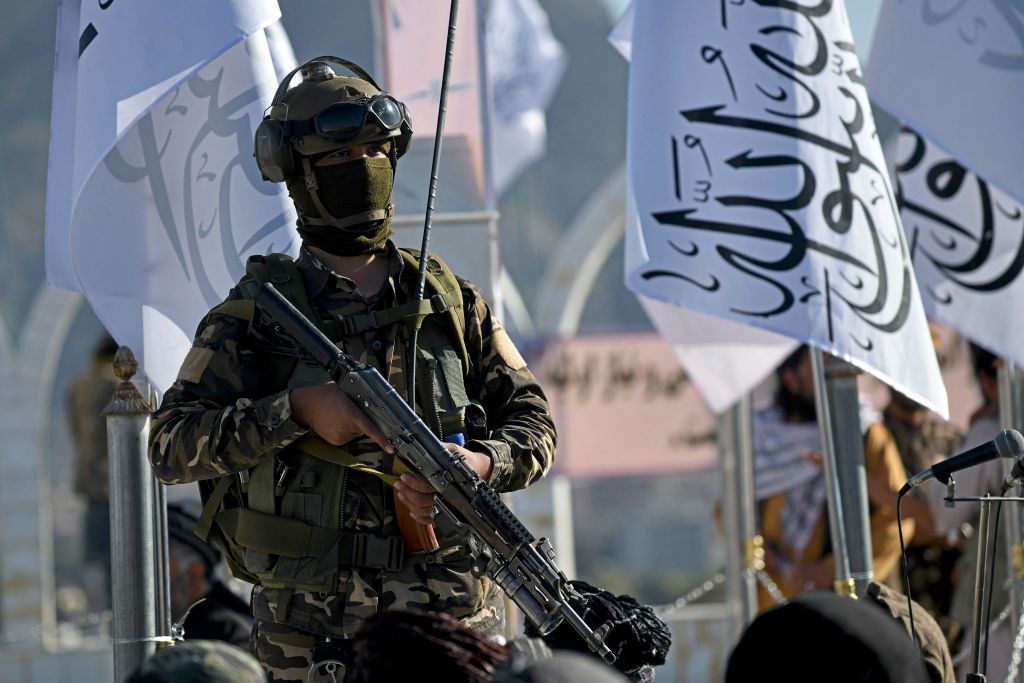As the world grapples with the Russian invasion of Ukraine and the tragedy that has befallen the Ukrainian people, it is important that we do not forget the ongoing man-made crises in other parts of the world. One is Afghanistan, under the rule of the Pakistan-backed and al-Qaeda-allied Taliban, whose draconian behavior hasn’t changed since they last ruled most of the country from 1996 to 2001, before being overthrown by the United States and its Afghan allies.
Before regaining power eight months ago, the Taliban were dubbed the “new Taliban” by former US envoy to Afghanistan, Afghan-American Zalmay Khalilzad. He brokered the February 2021 US-Taliban peace accord that facilitated the withdrawal of US, NATO and non-NATO allies and paved the way for the Taliban’s return to power.
In several interviews with Afghan media, Khalilzad justified his conclusion of the peace deal by saying the Taliban had changed, and acknowledged their past mistakes regarding women’s education, the group’s standing in the world and its ties to other groups such as Al- Qaeda a .
Two Pakistani scholars, Huma Baqai and Nausheen Wasi, have recently confirmed and extended this view. in the Pakistan-Afghanistan Relations: Pitfalls and the Way Forward, it says: “The new Taliban seem more pragmatic and politically adept. They display political acumen that is refreshing and inspires hope for improvement. Many confidence-building measures have been taken to encourage national and international support.’ This is also a perspective promoted by Islamabad.
These views could not be further from the truth. Since seizing power, the Taliban have proven to be as theocratic a group as ever. They have done nothing to convince most of Afghanistan’s mosaic population, and indeed the international community, that they are less absolutist and discriminatory than before.
Contrary to previous claims by some of their leaders that they would form an inclusive government that respects human rights, and in particular the rights of women and girls to education, work and participation in public life, they have taken no positive steps. Their insistence on an interpretation and application of Islam that relies on a perverse form of Salafism or Deobandism to consolidate power amounts to an abuse of the religion. They have remained resolutely exclusionary and repressive with no intention of building a participatory system of government and respecting human rights. They have also not severed their ties with al-Qaeda, which has forged cells in at least half of Afghanistan’s 34 provinces.
A group predominantly from the Ghilzai tribe of ethnic Pashtuns, who historically made up about 42% of Afghanistan’s population, the Taliban have enacted draconian decrees and rules to treat women as social outcasts. They have ignored the Islamic emphasis on acquiring knowledge as a right of all Muslims. Women may not travel more than 40 miles from their place of residence or board aircraft without a legal male companion. Freedom of expression, broadcasting and assembly is severely restricted. This has been accompanied by beatings, arrests and punishments of women who have publicly protested for their rights, as well as of journalists and intellectuals who considered the Taliban undesirable. Ostracism, marginalization and killings of some members of the previous government and ethnic minorities, particularly the Hazaras and Panjshiris, as well as house searches to detain suspected opposition figures and the confiscation of weapons are commonplace.
Meanwhile, the factional split between Taliban leaders from southern Kandahar province and those from eastern provinces has weighed in favor of the latter, run by the horrific Haqqani network. This group, which controls Kabul, is closely linked to al-Qaeda and Pakistan’s powerful military intelligence agency, Inter-Services Intelligence. It is headed by Interior Minister Sirajuddin Haqqani, who is on the FBI’s most wanted list. Many other cabinet members, including Prime Minister Mohammad Hasan Akhund, are on the United Nations blacklist.
But while the Afghan people are in dire economic and financial straits, and half are at risk of starvation, Pakistan has not been deterred from maintaining its full support for the Taliban. The Chinese and Russians have a strong tendency to form close ties with them as an anti-US measure. Following the Ukraine crisis, the Chinese foreign minister and a Russian delegation led by Moscow’s envoy to Afghanistan made a simultaneous visit to Kabul on March 24 for wide-ranging talks with Taliban leaders.
Whatever the political game of Beijing, Moscow and Islamabad, it is incumbent on the West and also the international community not to shift their focus from Afghanistan in the face of the Ukraine and other crises in the world. If left unchecked, Taliban rule is inadequate to building a viable political order and creating a largely acceptable functioning state in the face of a population that has historically proved divided and rebellious. Various armed opposition groups have already launched guerrilla operations against the Taliban and they can only gain strength if the Taliban do not change their behavior. This is something that Pakistan, the Taliban’s main patron, and other susceptible outside actors, particularly China and Russia, need to recognize.

